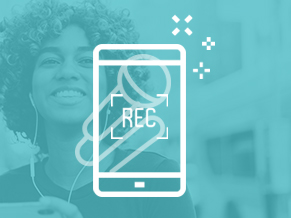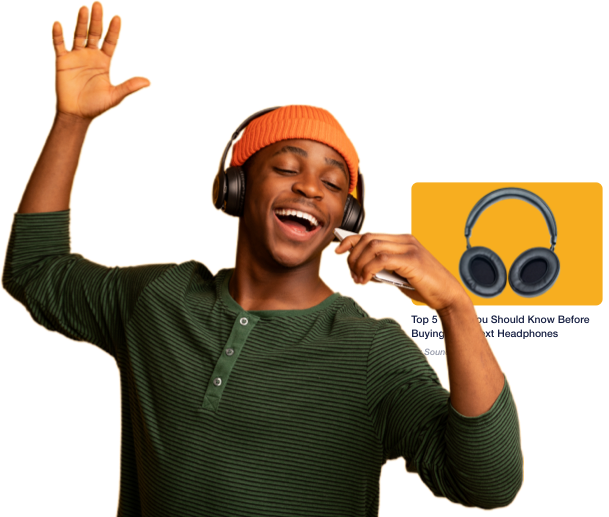6 Great Examples of Brands Content Marketing With Podcasts
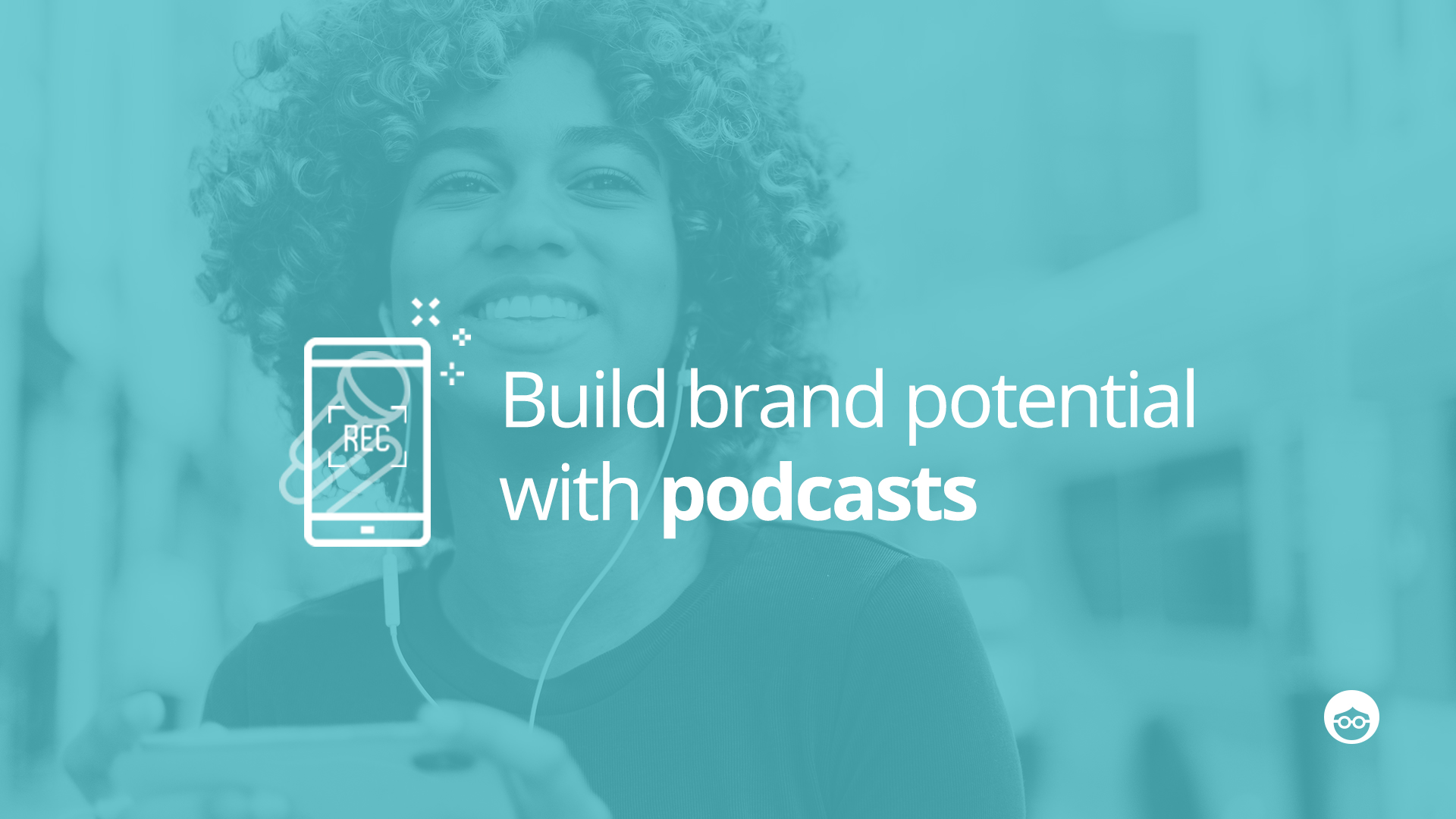
Brands who use creative mediums to showcase their personalities and knowledge are, increasingly, the businesses most likely to succeed.
According to some who’ve studied the cultural impact of podcasts since their beginning, 2019 saw the largest leap in U.S. listenership yet. This is the first year in which more than 50% of the population reported having listened to a podcast.
Altogether, one-third of the U.S. population now listens to podcasts — a monthly base of users 90 million strong. There’s no denying the potential for companies with a message or a product they want to introduce to a larger audience. But how can brands do podcast marketing right?
Here are six examples worth emulating:
1. General Electric (“LifeAfter“)
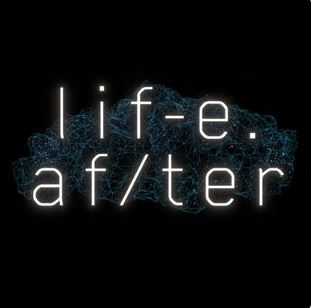
Product placement is always a gutsy move. You risk alienating your audience — but if you pull it off, you can have a laugh at yourself, break the fourth wall a bit and create a memorable moment like the Oreo scene in the “Lost in Space” reboot on Netflix. It was polarizing, which means it did its job — it got people talking.
Based on rave listener reviews for General Electric and Panoply’s “LifeAfter,” people are talking about this clever spin on product placement, too. “LifeAfter” is a science fiction radio drama that follows along in a journalistic style as Ross, a “low-level FBI employee,” uses real-world technologies made by GE to decode cryptic messages from, well, somewhere, while he simultaneously pieces together a mystery of significant personal significance.
It’s hard to imagine a more ingenious way to create memorable dramatic moments using your own products in the present day, while also reminding listeners that you’ve got your eye on remaining relevant well into the future.
2. Microsoft (“.future“)
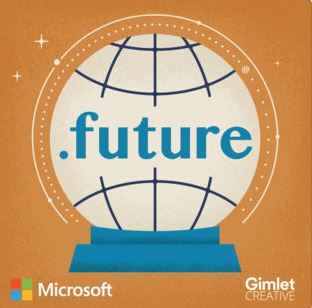
It’s easy to take Microsoft for granted or think they’re not hip anymore. They’re ubiquitous enough that people don’t think about how far they’ve come or how relevant the brand is in our daily lives. Yet Microsoft has been continuing their pace of quiet, deliberate and consequential innovation over the years.
In “.future,” Microsoft takes an extended look at technology. The podcast discusses how the future of humanity might spool out from here, based on the personal and societal choices we make as well as current trends in technology, public health, automation, big data and much more. “.future” is more transparently a branded podcast than some of the others we’ll look at here. But given the company’s celebrated history and the way its products have meshed with our personal and professional lives, that works in the show’s favor — not against it.
3. Basecamp (“The Distance“)
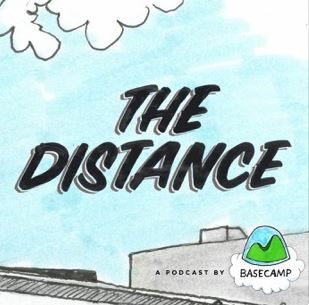
How do you convince people that your product could change their lives? First, you have to convince them your product fits a human need or solves a familiar problem. Basecamp is the maker of a popular team and content management platform for businesses. Everything the company does revolves around empowering people to find their most productive selves, stay organized and keep their eyes on their long-term goals as well as more immediate daily ones.
Basecamp’s “The Distance” podcast looks at what it takes to succeed and then spins entertaining and inspiring stories from real-world experiences of entrepreneurs whose companies stood the test of time for a quarter-century or more. Basecamp software is built on simple and practical values like efficiency and logical organization — but it also embodies a strong personality, a good idea and a resilient spirit. “The Distance” is all about people who took basic business and organizational tenets and turned them into gold.
4. Blue Apron (“Why We Eat What We Eat“)
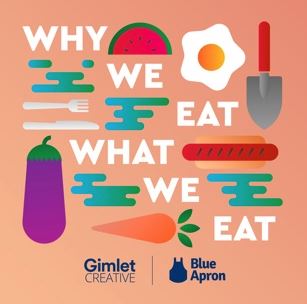
No matter how genuinely entertaining or useful a brand’s podcast might be, there’s still a fine line to walk when it comes to how aggressively to engage in branding within that podcast. For a look at how to walk that line effectively, check out Blue Apron’s “Why We Eat What We Eat.”
The show encourages you to forget you’re listening to a corporate product by saving the branding for the credits. Instead, it remains focused on entertaining and edifying investigative journalism into food trends and the origins of cultural and social eating habits. The podcast is an exuberant celebration of all things “food” — and it positions Blue Apron as a source of nutritional and cultural knowledge as well as a place that delivers quality eats.
5. TEDTalks (“TEDTalks Daily“)
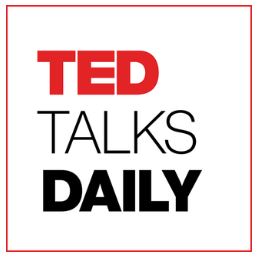
We know what you’re thinking — TEDTalks is already world-famous for videos, so why change things up with a seemingly redundant format? Especially when everybody’s talking about the fact that
net will be video by 2021. It’s because video is highly appealing and visually engaging — but it’s not always convenient in today’s fast-paced world.
In other words, TEDTalks branched out into podcasts with TedTalks Daily because they wanted to capture another subset of users who might enjoy stories about astronomy, homesteading, tree identification, personal finance, artificial intelligence, coding and animal husbandry. Commuters on public transit might not be able to watch a video lecture in comfort while retaining a sense of their surroundings, but they can more easily do so with a podcast. And TEDTalks Daily serves up something new every day.
TEDTalks benefits by placing the brand in another app ecosystem — podcasts — and furthering its visibility, authoritative credibility and name recognition.
6. McAfee (“Hackable?“)

If you want to present your company and its brand identity as a subject matter expert on a vital topic, a podcast may be the best way to do so. The overhead is low, publishing is quick and you can keep to your own schedule. Report on newly breaking stories in your industry daily, or take longer, deeper dives into related topics over several episodes. You can choose several paths here.
McAfee’s “Hackable?” podcast is a prime example of cutting-edge podcastry done right. Cybersecurity isn’t just a trending topic these days — it’s a household concern as well as a political football and a civic issue of significant importance. McAfee is a household name in its own right, so to solidify their authoritative status in this field, they put together a podcast that combines humor and genuine entertainment value with a mission to bust dangerous myths surrounding the topic of hacking. The show informs listeners and makes them aware of cybercrime and how to keep themselves safe on the ‘net.
This is a podcast for people who want to stay safe, but it’s also appealing for those who want to better understand how countermeasures work to stop digital crimes.
New Audiences
If you’ve seen something inspiring on this list, know that there will never be a better time to get your foot in the door of podcast-based content marketing. If you are looking to set up a podcast for your business, Podcast Rocket can help with that.
Brand Podcasts aren’t just broadly and increasingly popular — they’re also popular specifically among millennials, who are coming into their own as a majority of the market and the workforce.
With the right story, angle, know-how or guests, almost any brand can increase brand awareness by creating a podcast that’s as much a destination as it is a piece of branded content.
Inspired to start you own podcast? Check out our Podcasting 101 guide.
